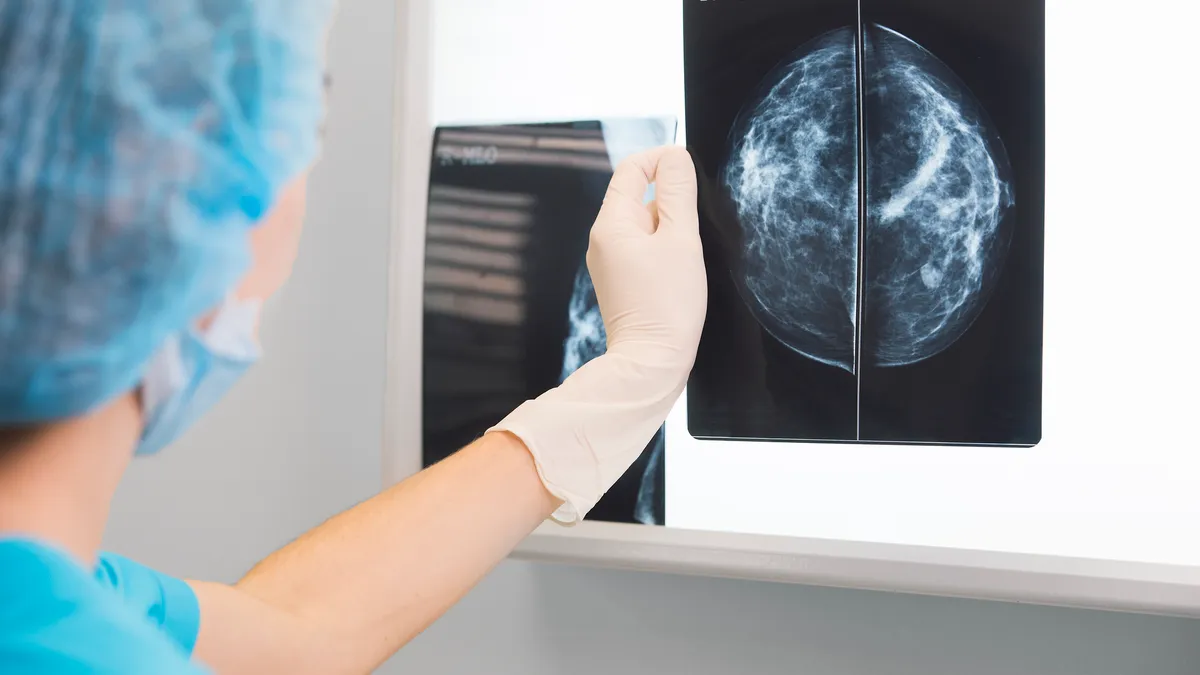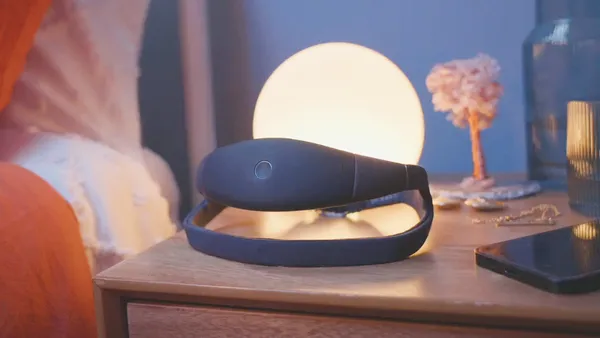Dive Brief:
- A prospective study published in the journal Lancet Digital Health found that an AI tool paired with a double reading by one radiologist was as good at detecting breast cancer as a double reading by two radiologists, the current standard of care.
- Researchers at the Capio Sankt Göran Hospital in Stockholm, Sweden, and the Karolinska Institute said the results suggest that AI “has potential for controlled implementation, which would include risk management and real-world follow-up of performance.”
- The study used the Insight MMG system for breast cancer detection, made by Seoul, South Korea-based Lunit. The company helped fund the research, in addition to grants from the Swedish Research Council, the Swedish Cancer Society, and Region Stockholm.
Dive Insight:
AI solutions have proliferated in medical imaging, where ample data is available to train algorithms to detect cancer, stroke and other serious conditions. Lunit’s Insight MMG solution has received 510(k) clearance from the Food and Drug Administration and a CE mark in Europe. Other competitors in the space include iCAD and ScreenPoint Medical.
The prospective study included more than 58,000 women who had regular mammography screenings at Capio Sankt Göran Hospital in Stockholm. Consistent with usual care at the hospital, if any of the readers reported abnormal findings, two radiologists would have a consensus discussion before deciding whether to send patients for additional imaging.
The study found that readings from a radiologist and an AI reader resulted in a 4% increase in screen-detected cancers, or about 11 more cases, compared to two radiologists. However, the AI-radiologist duo also caused a 21% increase in the number of examinations with an abnormal interpretation, resulting in more consensus discussions. This did not translate into an increased recall rate for additional imaging.
Even with more consensus discussions, the researchers said, “the workload reduction would be considerable,” noting that replacing one radiologist with AI would save 100,000 radiologist reads.
The study, along with interim results of a separate, randomized controlled trial on mammography screening, “heralds the arrival of prospective trials of AI in the breast screening setting,” cancer researchers with the Daffodil Centre in Sydney, Australia, wrote in commentary published in the Lancet.
They added that the study shows that some form of human arbitration is crucial for limiting additional AI false-positives, and that because the study was not randomized, it will not provide information on the effect of integrating AI on interval cancer rates.
“Breast cancer screening programmes worldwide are likely to welcome the findings from these prospective AI trials,” the commenters wrote. “The findings provide scientific justification for planning programme-embedded prospective trials to assess the effectiveness of AI in various workflows and screen-reading strategies. However, although AI seems poised to improve efficiencies in breast screening programmes, the health impact of AI screen-reading is unknown.”














